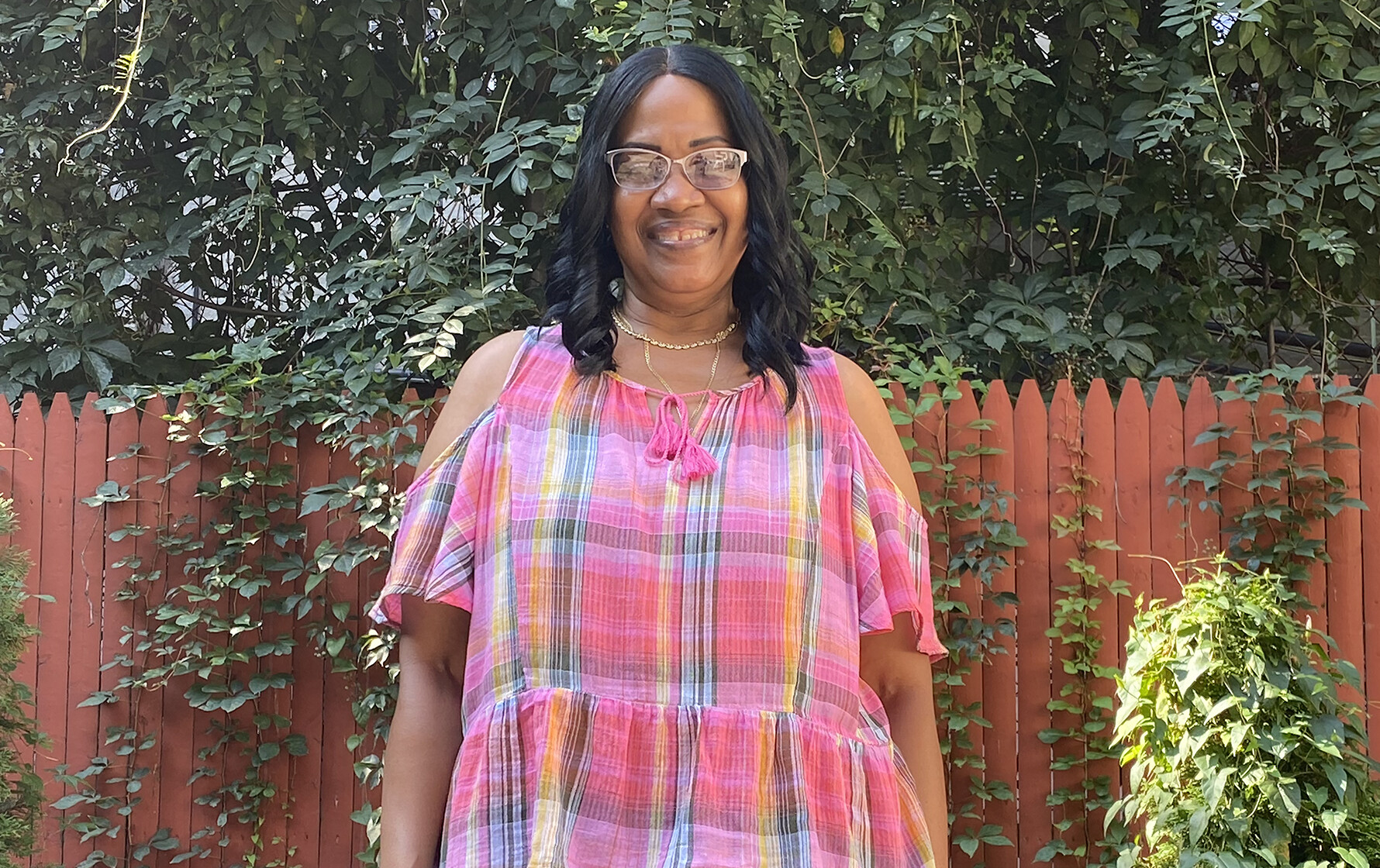Joan Eliam admitted that she had trepidation about working in a residence after more than three decades working in day habilitation, most recently at Norfolk Day Services on the Lower East Side.
“Once we were told that we had to go it was tough because I’m used to working in the day hab setting,” Joan said at Kraus residence in lower Manhattan, where she has been supporting people since March 2020. “We were told to come here and provide what services we could here in their homes. This is new to me—I never worked in a residence before.”
She was grateful to see some familiar faces at Kraus. “I do have a few people here that went to Norfolk that helped me adjust. Overall, my colleagues are excellent and helped me get used to working here, and introduced me to the people I did not know. And I took it from there.”
Joan originally worked for FEGS, joining that agency in 1991. “I wanted to become a job coach and was then approached to work at what the time was called day treatment,” she recalled. “It was so many things that you can do—take them out in the community, show them how to be independent, teach them how to travel. I used to run a women’s group and you’d be surprised about the questions they had—what it’s like to be married, what is it like to have kids? Those things are what kept my passion to teach.”
Providing Crucial Emotional Support
Joan continued to teach upon arriving at the residence, looking to everyday situations for inspiration. “There was a crisis going on. I wanted to teach them about what was going on and how to protect themselves.” She went over handwashing and mask-wearing, making use of YouTube videos for further engagement, and constantly provided emotional support. “They couldn’t go to their programs; getting them to understand and adjust was a challenge in itself.”
Joan kept finding ways to get the residents moving and excited. She went back to an idea she formulated at Norfolk. “I started doing an exercise program in the morning—they were getting stiff and bored. I had everyone exercising.” It’s ok when people aren’t feeling up to it, too. “I always give them the choice of what they like to do. If they are not in the mood to go out or something like that I’ll say ‘Ok, go relax and tell me when you want to go’ and that usually works.”
Emotional support was perhaps even more important. “They had a lot of questions—I had to comfort them. They could not understand why we couldn’t go back to the program. A lot of one-on-one conversations have been necessary. Some of them understood, and some of them to this day ask ‘why can’t I go back to the program?’ It’s something we still talk about. “
The residence has benefitted from Joan’s presence, according to her colleagues. “Wherever we needed help she pitched in,” said Sharon Pitt, Manager at Krause Residence. “She loves to take them out in the community and helps us prepare and serve lunches. She’s an all-around helper.”
